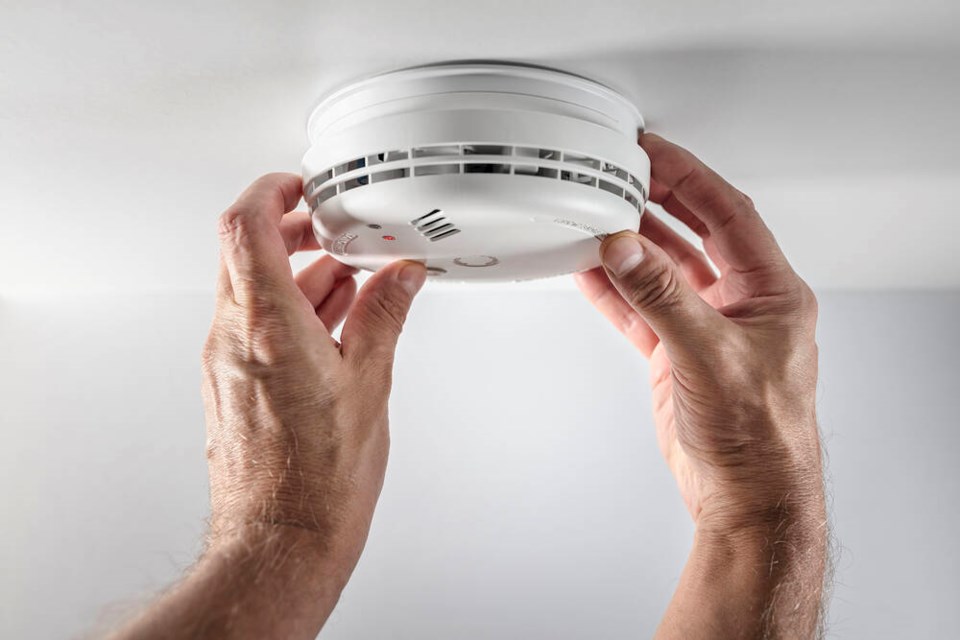It’s difficult to stay awake all night so that you’re ready to react, just in case a fire breaks out.
So that’s why they invented smoke alarms, devices that sound an-earsplitting shriek to get you going if fire has broken out.
That’s the theme this year for Fire Prevention Week, from Oct. 6 to 12.
Delta Fire and Emergency Services teams up with the U.S.-based National Fire Protection Association every year for Fire Prevention Week, with the theme this year being, “Smoke alarms: Make them work for you.”
According to Delta Fire and Emergency Services, a working smoke alarm doubles the chance of escaping a fire.
As well, almost two-thirds of home fire fatalities are in homes with no smoke alarms or no working smoke alarms, usually because batteries are dead.
One aggravating factor is that if an alarm is not working because of missing or dead batteries, the smoke or gases from a fire can quickly put people into a deeper sleep, making escape impossible.
Delta fire notes that fires today can burn faster than ever, with occupants having only one to two minutes to escape from the time the smoke alarm sounds.
“Knowing how to use that time wisely takes planning and practice,” Delta Fire and Emergency Services says on its website.
The focus for this year’s Fire Prevention Week is ensure people know how important it is to have working smoke alarms in your residence.
Some tips from Delta fire include:
• install smoke alarms in each bedroom, outside each sleeping area, on every level of the home, (including the basement)
• smoke alarms should be mounted on the ceiling, or high on the wall and should be at least three metres from a kitchen stove, or even away from the kitchen to reduce false alarms
• test smoke alarms monthly by pushing the test button
• change smoke alarm batteries every six months, or buy smoke alarms with a sealed, 10-year battery
• hardwired smoke alarms require a battery back up, in case of a power outage
• smoke alarms to be replaced if they’re 10 years old or more
• there are special alarms for those who are hard of hearing
• interconnected smoke alarms are best because that means all alarms will sound if there’s a fire in one part of the house.



